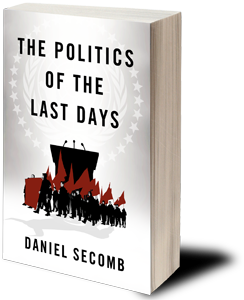We could have predicted this: Canada may extend the “right to die” to the mentally ill. It’s an evil idea.
In 2015, Canada legalized physician-assisted suicide. We have talked about the Canadian decision several times on BreakPoint. In March, in fact, we talked about how many Canadian doctors who had originally indicated a willingness to be the “physician” in “physician-assisted suicide” were having second thoughts.
Now, there’s a campaign to extend what Canada calls “physician assistance in dying” beyond the terminally ill to include the mentally ill. This comes as no surprise to those who have followed the trajectory of Belgian and Dutch laws, which have served as a model for the rest of the world.
Not only is this a terrible idea, it’s also what’s to be expected if, as Wesley J. Smith told Fox News, “society broadly accepts the agenda of killing as an acceptable end to human suffering . . . We eliminate suffering by eliminating the sufferers.”
But even if you don’t believe in the sanctity and dignity of human life, and even if you could rationalize physician-assisted suicide for the terminally ill, extending this “right” to the mentally-ill is an idea that should be resisted at all costs.
The reason why lies in how “mentally ill” is defined. The expression “mental illness” is a broad category that includes different psychiatric disorders such as schizophrenia, bi-polar disorder, obsessive-compulsive disorder, and clinical depression, to name but a few.
While these disorders are different in their symptoms and how they are treated, they share one vital characteristic: a disconnect between what the person’s mind says is true about, well, almost everything, and what is actually true. As a friend of mine has put it, “our minds can be terrible liars.”
There’s a reason that arguably the greatest book ever written about living with mood disorders was entitled “An Unquiet Mind.” People who live with mental illness, especially bi-polar disorder, depression—as I do—and anxiety disorder, spend a lifetime reminding themselves that just because they think something—a “something” that nearly always portends evil, suffering, and despair—does not make it true.
And that’s just the medical side. As 1 Peter tell us, “Your adversary the devil prowls around like a roaring lion, seeking someone to devour.” The “devouring” takes various forms, one of which is to make us miserable. How? By lying to us about, well, everything.
The Adversary’s goal is to induce despair, which Thomas Aquinas defined as “ceasing to hope for a share of God’s goodness,” and make us call God a liar when He tells us in Psalm 34, “Taste and see that the LORD is good; blessed is the stalwart one who takes refuge in him.”
The distortions caused by mental illness, coupled with what Christians know about our Adversary, render the notion of consent in the Canadian proposal absurd. When you hear, “please let me die,” you can never be certain whose words you’re hearing: the person’s, the illness’s, or the Adversary’s.
None of this is to deny that mental illness can be painful, even excruciating. Even for the devout Christian, it can seem like a dark wood from which there is no escape.
But in virtually every instance, that, too, is a lie. The late James Cavanaugh, a Jesuit priest, once wrote that “If we could count the fears, both small or large, that once hounded us, and then thank God for each dreaded outcome never met, we would reach no end to gratitude.”
The Canadian proposal, if adopted, ensures that vulnerable people will never know how wrong they could be and, thus, experience the gratitude Cavanaugh wrote about.
All of which makes assisted suicide for the mentally ill a terrible idea based on a terrible lie.
Source: BreakPoint
 Register your interest for Daniel Secomb's new book, "Politics of the Last Days"
Register your interest for Daniel Secomb's new book, "Politics of the Last Days"
Daniel's new book explores the integral and fascinating role that politics will play in the end times.
He demonstrates that political philosophy is actually underpinned by biblcal principles and that by examining the political history of the past can give us a fascinating glimpse into how Biblical end times events will unfold.
Be sure to sign up with your name and email address to be notified of updates and the upcoming release date of the book.



















